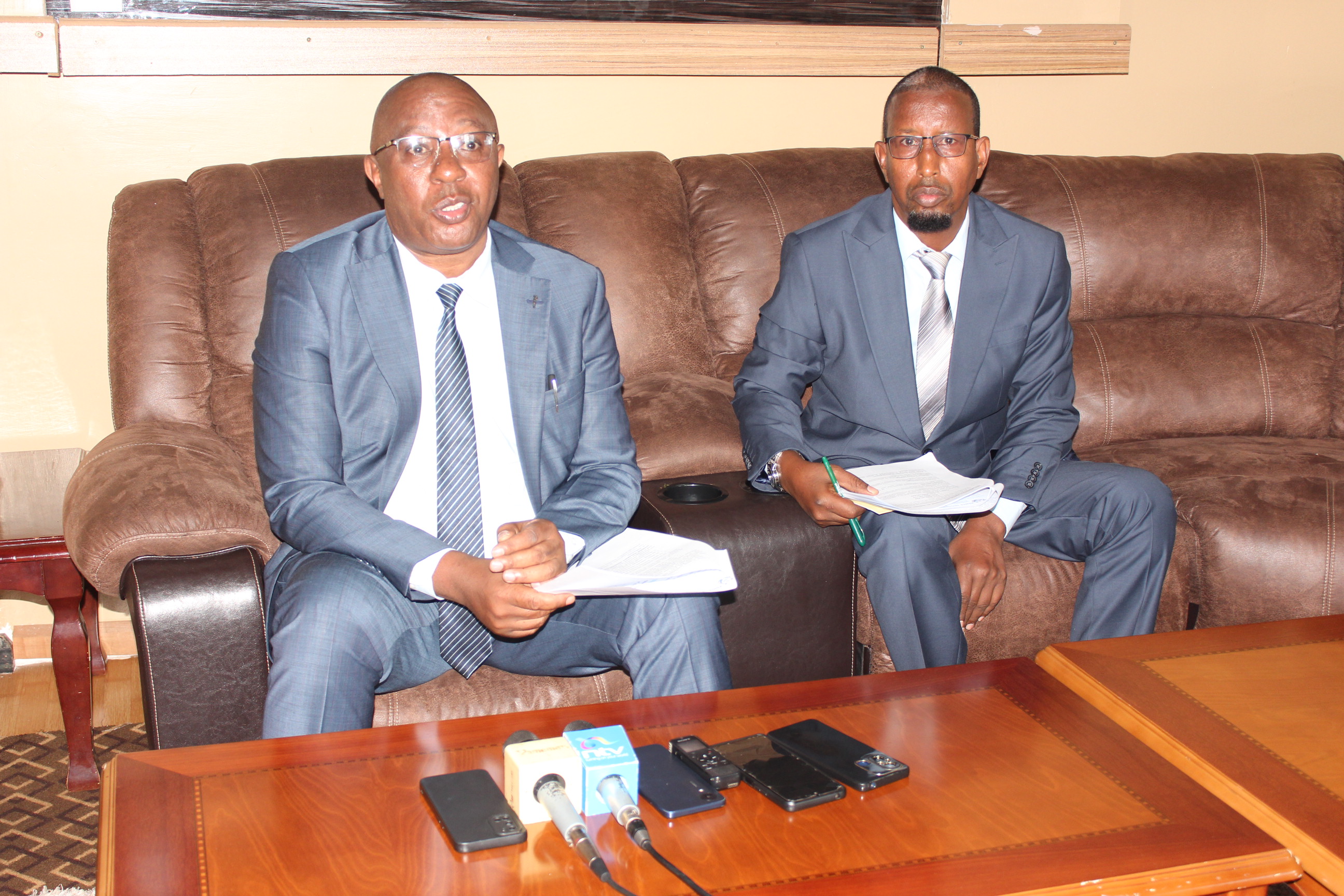 KESSHA chairperson Willie Kuria with national secretary general Abdinoor Haji in Murang'a.
KESSHA chairperson Willie Kuria with national secretary general Abdinoor Haji in Murang'a.Secondary school heads have asked the government to release
capitation arrears for the first and second terms as schools near closure.
Kenya Secondary School Heads Association Willie Kuria has
said the government owes schools a total of Sh18 billion this year alone and
that financial constraints are hampering normal school operations.
Each learner receives Sh22,144 annually that is released in
batches, with 50 per cent released in the first term, 30 percent disbursed in the second term, and 20 per cent released in the third term.
In the first term, the government was expected to release
Sh11,122 but disbursed Sh8,818 per learner, leaving arrears totaling Sh2,304.
Schools received Sh3,471 for the second term instead of
Sh6,673, leaving a deficit of Sh3,202 for the 3,280,182 learners in public
secondary schools.
“The total arrears
for the first term were Sh7.6 billion and Sh11 billion for the second term,”
Kuria told journalists, expressing concerns that the consistent delays in
disbursements are affecting the quality of education accessed by learners.
Despite the second term being the longest in the year
with 14 weeks, Kuria said it was disconcerting that it received such a meager
amount against the rising cost of living that has pushed the cost of
commodities high.
Kuria, who is also the chief principal of Murang’a High School, pointed out that suppliers who are owed billions are getting jittery as
the term comes to an end and want pending bills cleared, yet schools have no
funds.
“We only have two weeks remaining in this term and had hoped
that we would have received another tranche of payment so we can pay salaries
for the support staff and teachers employed through the Boards of Management,
and clear some bills,” he added.
He noted that the issue of delayed disbursements has been
silently building over the last year years, adding that schools have been receiving
far below the required amounts.
Out of the Sh6,673 allocated for the second term, the government
only released Sh4,289.24 per learner in 2022, Sh4,150 in 2023, Sh4,505 in 2024
and Sh3,471 this year that Kuria said is too little to keep schools afloat.
Special needs schools are worst affected, he pointed out, as
they are forced to close when water or power is disconnected. The schools received
Sh26,148 out of the Sh35,370 expected.
“These schools require power overnight so when power is cut
due to unpaid bills, they have no choice but to send students home”.
He said closing the term with the arrears will put learning
institutions under more pressure as suppliers demand their dues while workers
remain unpaid and that schools are in a constant state of financial crisis.
Kuria called on the government to be honest and make it
clear how much money it can disburse, and allow parents to contribute the rest
of the money.
“Before 2017, parents would contribute Sh9,000 out of
Sh22,144 but the government said it would step in and provide all the money, but
it has been unable to,” he said.
The government also owes the schools Sh64 billion from
previous years.
He observed that failure by the government to disburse the
arrears compels schools to close early while minimizing co-curricular
activities while making it impossible to build the capacity of teachers.
Kuria asked the government to consider including a minimum
essential package to sustain schools with a low enrollment with their everyday
basic needs.
He also called for a review of capitation every three years
to factor inflation, saying lack of funds has seen a gradual rise of poor grades
countrywide.
KESSHA National Secretary General Abdinoor Haji said day
secondary schools are faring poorly as they only depend on capitation.
“Most school heads are only playing hide-and-seek with
suppliers and they have no funds to pay them. Most schools have also laid off
majority of B.O.M. teachers, which has compromised the quality of education and
led to overcrowding as classes are merged,”















